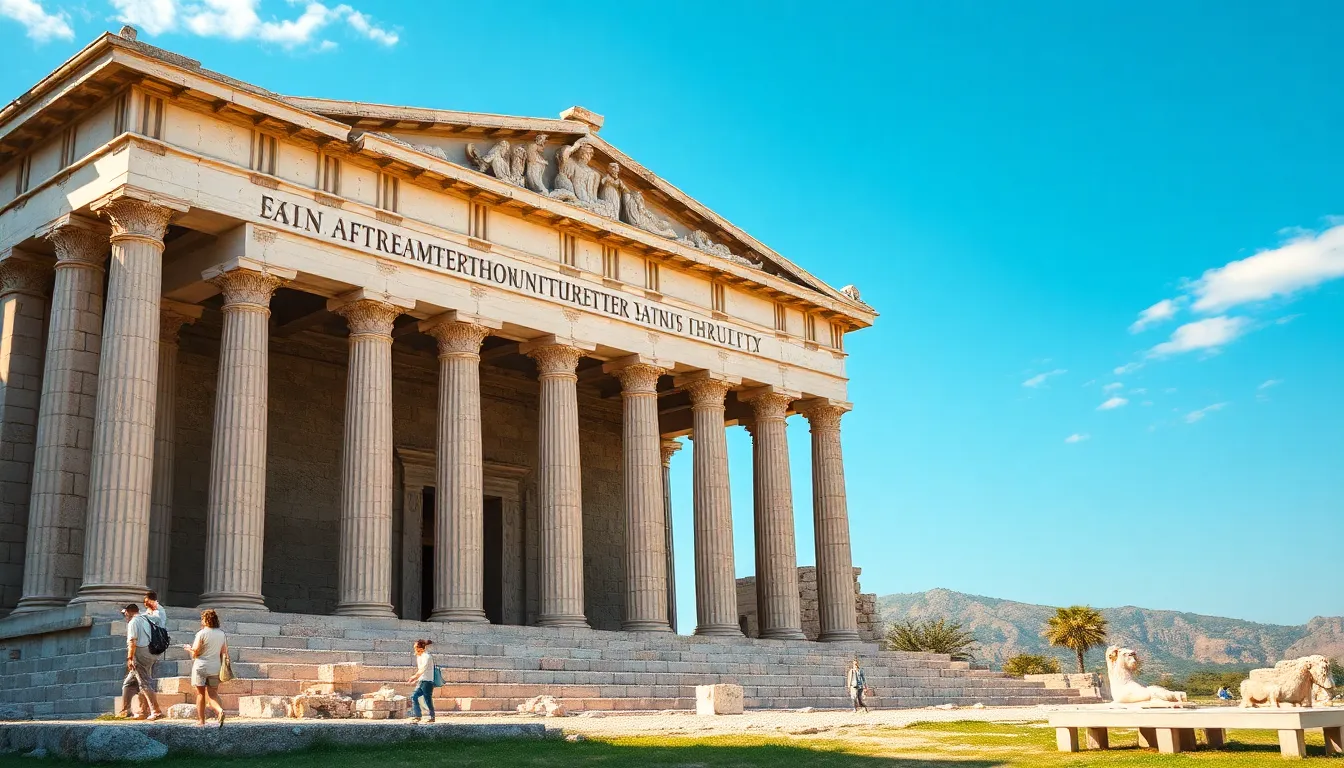The Influence of the Greek Pantheon on Roman Mythology
I. Introduction
The realms of Greek and Roman mythology are rich tapestries woven with stories of gods, heroes, and mythical creatures. While both mythologies share many similarities, they also possess distinct characteristics that reflect the cultures from which they emerged. Understanding the connections between Greek and Roman mythology is crucial for appreciating the evolution of these narratives and their impact on Western civilization.
This article aims to explore the influence of the Greek pantheon on Roman mythology, examining historical contexts, key parallels between deities, adaptations of myths, religious practices, artistic representations, and the enduring legacy of these ancient beliefs.
II. Historical Context of Greek and Roman Mythology
Greek mythology originated in ancient Greece, characterized by a polytheistic belief system that celebrated a pantheon of gods and goddesses, each representing different aspects of life and nature. Major texts, such as Homer’s “Iliad” and “Odyssey,” and Hesiod’s “Theogony,” laid the foundation for these myths, establishing the personalities and relationships of the gods.
Roman mythology, on the other hand, began to take shape around the 8th century BCE, influenced significantly by the earlier Greek traditions. As Rome expanded its territories, it encountered Greek culture and adopted many of its deities and myths, often renaming them and integrating them into Roman society.
The cultural exchanges that occurred during the Roman conquest of Greece in the 2nd century BCE played a pivotal role in shaping Roman mythology. Roman scholars and poets were deeply influenced by Greek literature and philosophy, leading to a blending of myths that enriched both traditions.
III. Key Parallels Between Greek and Roman Deities
A notable aspect of the relationship between Greek and Roman mythology is the existence of major deities that share similarities in attributes and stories. Below are some of the most prominent parallels:
- Zeus vs. Jupiter: Zeus, the king of the Greek gods, is known for his control over the sky and thunder, while Jupiter holds similar dominion in Roman mythology.
- Hera vs. Juno: Hera, the queen of the gods and goddess of marriage, is mirrored by Juno, who embodies similar attributes and responsibilities in Roman culture.
- Poseidon vs. Neptune: The Greek god of the sea, Poseidon, finds his Roman counterpart in Neptune, both revered for their control over water and horses.
The comparative analysis of these deities reveals not only shared traits but also unique characteristics that reflect the values and beliefs of their respective cultures. For instance, while Zeus is often depicted as a benevolent ruler, Jupiter’s character can sometimes embody the sternness associated with Roman authority.
IV. Adaptation of Myths and Legends
Roman mythology did not simply adopt Greek myths but rather evolved them. The process of adaptation involved transforming Greek narratives to fit Roman values and societal norms. This evolution is evident in various ways:
- Significant adaptations: For example, the story of the Trojan War is celebrated in both traditions but is recast in the Roman epic “The Aeneid” by Virgil, focusing on the hero Aeneas as a symbol of Roman virtue and destiny.
- Role of Roman poets and historians: Writers such as Ovid and Livy played crucial roles in reshaping myths. Ovid’s “Metamorphoses” retells many Greek myths but adds a Roman perspective, emphasizing themes of transformation and moral lessons.
These adaptations reflect the Romans’ desire to connect their own identity with the grandeur of Greek mythology while asserting their cultural uniqueness.
V. The Role of Religion and Worship Practices
The worship practices associated with Greek and Roman deities exhibited both differences and similarities. While both cultures practiced polytheism and held religious festivals, their rituals varied in significance and expression:
- Worship rituals: Greek worship often involved personal devotion and local cult practices, while Roman worship was more state-oriented and emphasized public ceremonies.
- Influence of Greek practices: Roman ceremonies were heavily influenced by Greek religious customs, incorporating elements such as oracles, sacrifices, and temple architecture.
- Integration into state religion: Greek deities were adopted into the Roman state religion, leading to a syncretism that blended both pantheons and expanded the worship of gods like Zeus/Jupiter into civic life.
This integration highlights the adaptability of Roman religion and its ability to encompass foreign influences.
VI. Artistic Representation and Cultural Impact
The influence of Greek mythology on Roman art and literature is profound. The Romans admired Greek artistic achievements, which greatly influenced their own artistic expressions:
- Art and literature: Roman literature often drew on Greek themes, characters, and narratives, with poets and playwrights like Seneca and Plautus adapting Greek stories for Roman audiences.
- Portrayal in sculpture and painting: Roman artists replicated Greek styles, creating sculptures and paintings that depicted Greek gods, often emphasizing realism and human emotion.
The lasting impact of these artistic representations can be seen in the Renaissance and continues to resonate in contemporary art and literature, showcasing the enduring legacy of Greek and Roman mythology.
VII. Legacy and Modern Relevance
The influence of Greek and Roman mythology extends far beyond ancient times, permeating modern culture in various forms:
- Contemporary culture: Myths are prevalent in literature, film, and popular media, with adaptations of ancient stories seen in works like Rick Riordan’s “Percy Jackson” series and movies such as “Clash of the Titans.”
- Ongoing fascination: Themes of heroism, love, betrayal, and the supernatural continue to captivate audiences, reflecting the timeless nature of these myths.
This fascination attests to the relevance of mythological themes in understanding human nature and societal values.
VIII. Conclusion
In summary, the interplay between Greek and Roman mythology is a testament to the cultural exchange and adaptation that occurs over time. The Greek pantheon significantly influenced Roman mythology, shaping the stories, deities, and religious practices that defined Roman culture.
The significance of these ancient myths remains profound, as they continue to inspire and resonate within modern society. As we delve into these stories, we uncover not just the past, but also insights into the human experience that endure through the ages.




